New PETA Asia Exposé Reveals Thailand’s Heartbreaking Baby Monkey ‘Schools’
In May 2024, PETA Asia’s investigators and veterinarian Dr. Heather Rally cracked the Thai coconut industry wide open by exposing exploitative “schools” in which baby monkeys are imprisoned and forcibly trained to pick coconuts. As many as 50 baby monkeys at a single school are isolated, confined, and broken in spirit by the Thai coconut industry so that they can be forced to harvest coconuts for the rest of their lives.
Watch video footage from the largest school we visited, and then use the form below to call on the Thai government to close all monkey schools and ban monkey labor!
As long as these “schools” are operating out in the open, it’s clear that the Thai government has no intention of ending monkey labor, despite the false “monkey-free” claims. This deception makes it nearly impossible for Thai coconut farms to guarantee that they don’t support this cruelty.
Thailand’s Coconut Industry Relies on Lies
Instead of transitioning to monkey-free methods of harvesting coconuts—such as planting shorter trees with coconuts that are easier to reach—the Thai government is working to mislead consumers. One broker admitted to PETA Asia’s investigators that with no oversight, coconut pickers simply lie. Brokers continue to buy coconuts picked by monkeys and to sell them to companies that make coconut products, and the companies and the government tout an “audit system,” even though it relies primarily on coconut producers’ word.
The only solution is for the Thai government to ditch its phony “monkey-free” certifications—which it offers to farms that have been proved to still use monkey labor—and make the practice illegal.
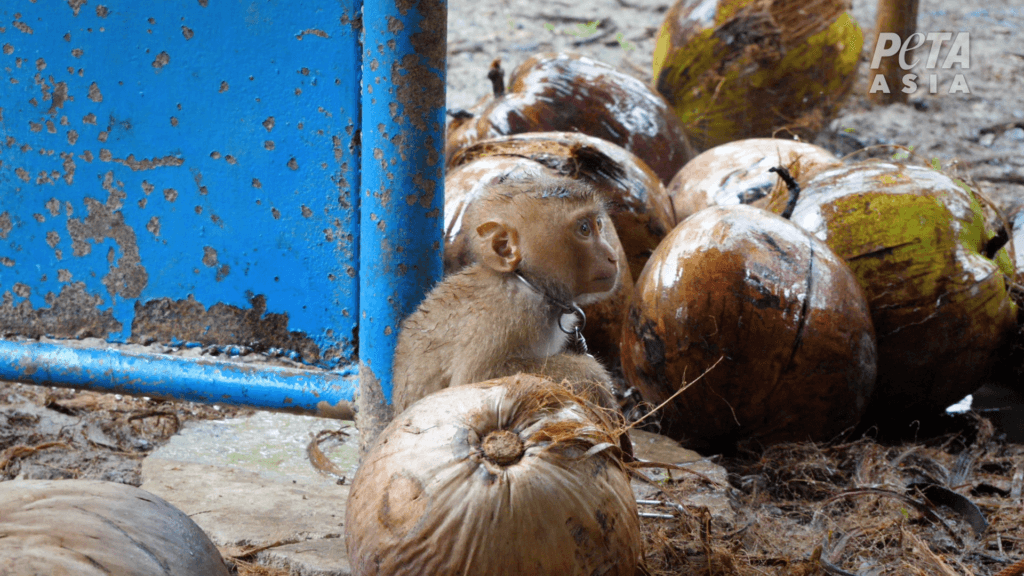
The Thai Government Rips Baby Monkeys Away From Their Mothers
At these “schools,” babies who are much too young to be separated from their mothers are tethered on ropes so short that they’re barely able to move. Trapped with plastic rings around their tiny necks, they cling together in fear.
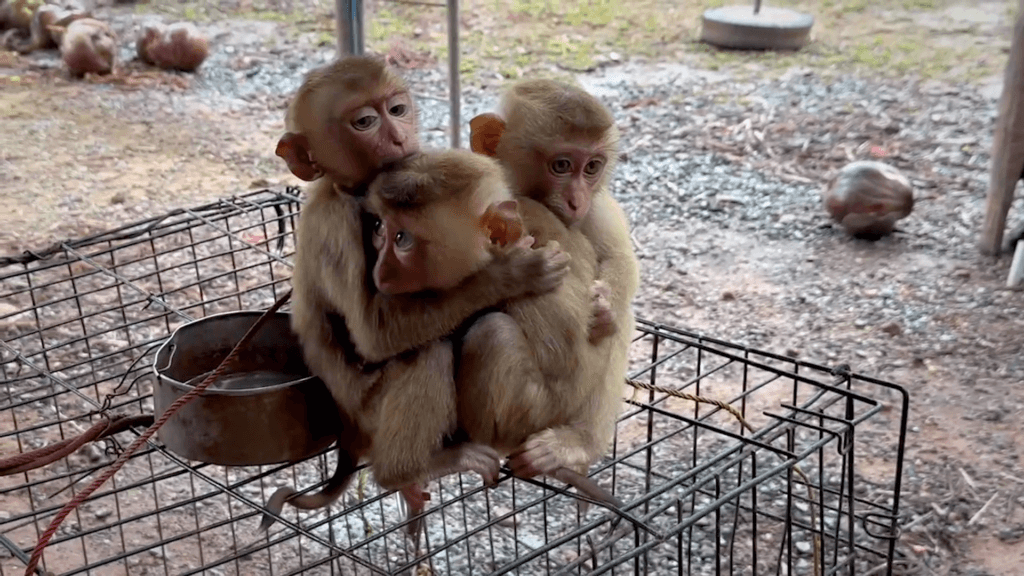
Denied any form of enrichment or comfort, these babies are chained and tethered on unforgiving metal bars that offer no comfort, warmth, or shelter except what they can find among each other. But the rope attached to one monkey was so short that the baby was unable to huddle with the others and could only lie separately on a cage, seemingly sick or injured:
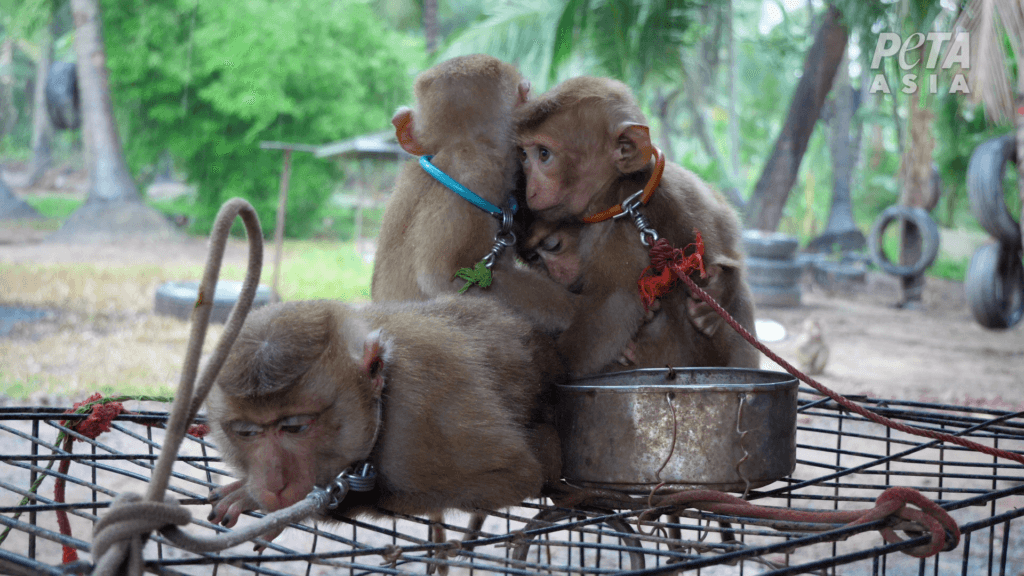
The monkey below was unable to move freely or sit on the ground because he was tethered by a short rope. His only option was to sit on top of the wire cage, which chafed his sensitive feet and bottom, or to stretch himself into an unnatural “hanging” position, straining his neck and throat:
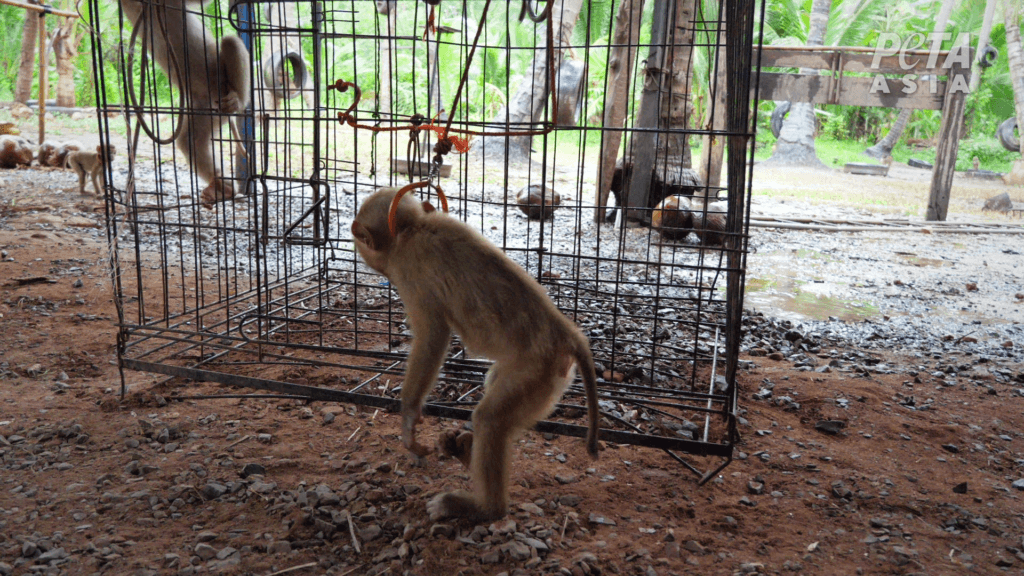
Many monkeys were stuck in trash-strewn areas with no protection from the elements. Others were tied up in muddy spots that flooded when it rained and had no shelter for protection as the dirty water rose higher around them:
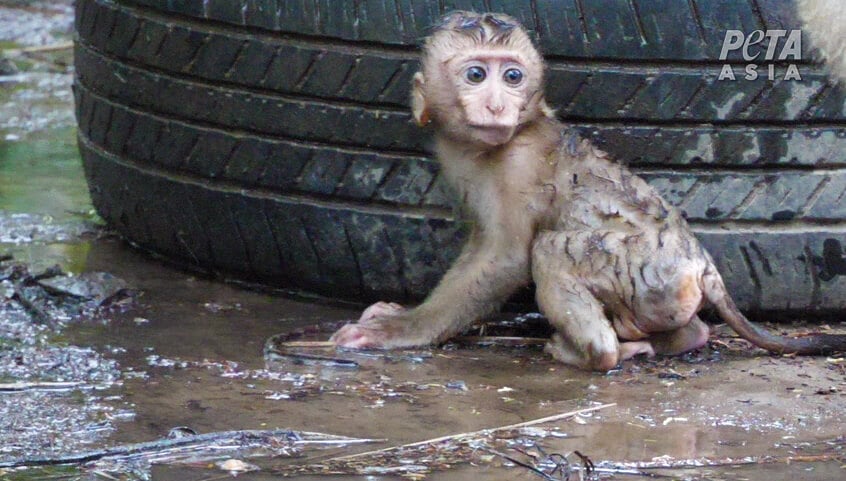
While investigating one coconut picker’s home, PETA Asia’s investigators saw what the future held for baby monkeys once they “graduated.” An older monkey was imprisoned in a small cage and chained around the neck.
Dr. Rally noted the following:
These conditions constitute extreme confinement and deprivation. Inside this cage, the animal has no water available, no way to escape from the extreme heat, no opportunity to take shelter, and nowhere to rest or escape from his own excrement or the discomfort inflicted by metal bars on his skin and feet. These conditions are psychologically torturous and physically debilitating as well as a direct threat to this animal’s life.
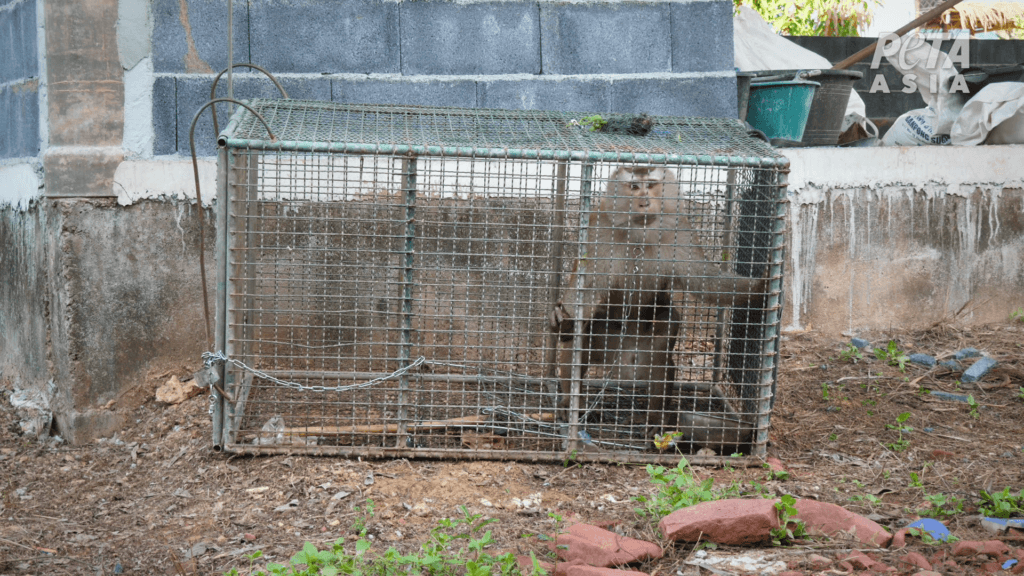
Speak Out Against Monkey Labor: Take Action Now
Every single baby monkey PETA Asia’s investigators and Dr. Rally observed was suffering from physical discomfort, maternal and social deprivation, and psychological torment—all just so that they could be trained and forced by these cruel “schools” to become coconut-picking machines for the Thai coconut industry.
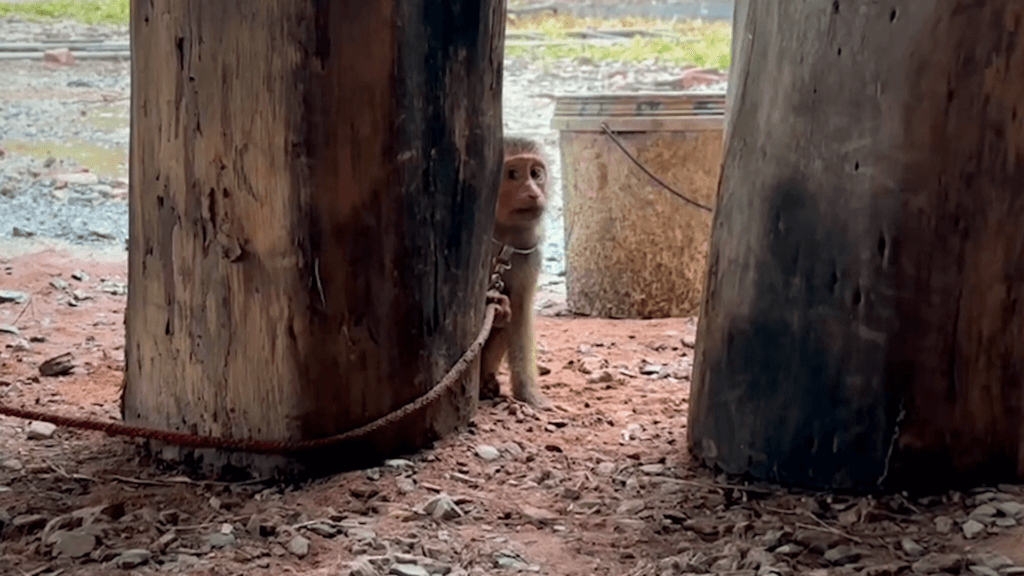
Please sign below to urge the Thai government to end this suffering by shutting down these “schools” and banning monkey labor in the country.
